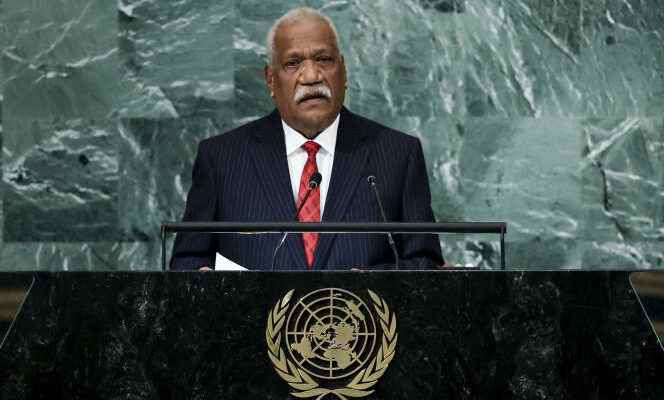Using the law to push governments to act on the climate crisis. This is the bet launched not by NGOs or citizens, but by eighteen countries led by Vanuatu. The Pacific archipelago, on the front line of global warming, wants an opinion from the International Court of Justice (ICJ), the highest court in the world. If the process succeeds, it would be the first time that this judicial body of the United Nations, created in 1945, would rule on the environment.
One draft resolutionpresented to the General Assembly of the United Nations on December 9, asks the fifteen judges of The Hague what are the obligations of the States in the protection of the climate and “other parts of the environment” for present and future generations. He also asks them about the legal consequences for countries that have failed in these obligations and caused “significant damage”in particular to small islands and to all States particularly vulnerable to climate change, as well as to “peoples and individuals” affected by his ” negative effects “.
Such an opinion, for its defenders, could fill the gaps in international texts on the climate, which do not clearly specify the obligations of States. In the paris agreement, sealed in 2015, countries, for example, set their own greenhouse gas emission reduction targets. The idea would not “not to create new obligations, but to specify those which result from all the principles of international law, the environment or human rights”and which are not necessarily codified in the context of climate change, explains Sébastien Duyck, jurist at the Center for International Environmental Law.
Non-binding opinion
Even if it were non-binding, such an opinion could push countriess “to go further” in climate action, these “can no longer hide” behind the ambiguities of their obligations, says Margaretha Wewerinke-Singh, assistant professor of sustainable development law at the University of Amsterdam (Netherlands) and one of Vanuatu’s leading legal advisers. And if the States do not accelerate, it would be easier to hold them accountable. “This opinion could be used by all courts in the world”continues the lawyer.
Furthermore, if the International Court of Justice were to recognize that polluters must repair the damage they have caused, it would be ” revolutionary “she adds. “We would send the signal that, from now on, it is no longer the victims who pay but the polluters. » Developed countries, led by the United States, have always opposed the idea of reparation or compensation for their historical responsibility for global warming.
You have 57.63% of this article left to read. The following is for subscribers only.
